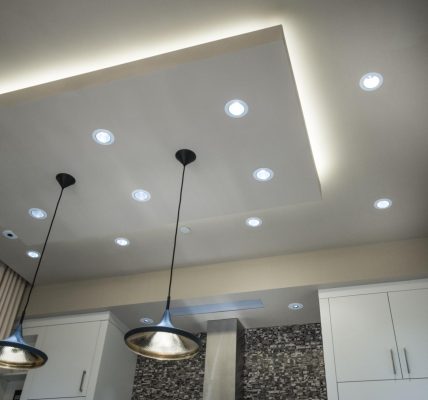In pool cleaning St Petersburg, ensuring that pool equipment functions properly is essential for maintaining a safe and enjoyable swimming environment. From pumps and filters to heaters and chlorinators, each component plays a crucial role in keeping the pool clean and well-maintained. However, like any mechanical system, pool equipment may require repairs from time to time. This article explores the signs indicating the need for pool equipment repairs, common repair services, the choice between DIY and professional repairs, and the importance of preventive maintenance for prolonging equipment lifespan to get pool cleaning st petersburg.
Signs That Pool Equipment Needs Repair
Strange Noises or Vibrations
Unusual sounds or vibrations emanating from pool equipment are often indicative of underlying issues that require attention. These abnormalities may signal mechanical malfunctions, loose components, or wear and tear within the equipment.
Potential Causes of Unusual Sounds or Movements
Strange noises such as grinding, squealing, or banging may indicate worn bearings, damaged impellers, or loose motor mounts in pool pumps. Vibrations could result from imbalanced components or misalignment within the equipment.
Importance of Addressing These Issues Promptly
Ignoring strange noises or vibrations in pool equipment can lead to further damage and costly repairs down the line. Prompt attention to these symptoms can prevent minor issues from escalating into major problems that disrupt pool operation.
Decreased Performance or Efficiency
A decline in the performance or efficiency of pool equipment is another red flag indicating the need for repairs. This may manifest as reduced water circulation, inadequate heating, or poor filtration, resulting in compromised water quality and swimming conditions.
Symptoms of Reduced Performance in Pool Equipment
Decreased flow rate in pool pumps, insufficient heat output from heaters, and cloudy water due to ineffective filtration are common symptoms of reduced equipment performance. These issues can detract from the overall enjoyment and safety of the pool environment.
Consequences of Ignoring Performance Issues
Failure to address performance issues in pool equipment can lead to increased energy consumption, higher utility bills, and diminished water clarity. Additionally, poor equipment performance may strain other components of the pool system, resulting in more extensive damage over time.
Visible Damage or Wear
Inspecting pool equipment for visible signs of damage or wear is essential for identifying repair needs early on. Cracks, corrosion, leaks, or rusting components indicate structural weaknesses that can compromise equipment functionality.
How to Identify Visible Signs of Damage or Wear
Regular visual inspections of pool equipment, including pumps, filters, heaters, and chlorinators, allow pool owners to detect any visible signs of damage or wear. Paying attention to leaks, cracks, or discoloration can help identify potential repair needs before they escalate.
Impact of Neglecting Visible Damage on Equipment Lifespan
Neglecting visible damage or wear in pool equipment can lead to more severe issues, such as component failure or system breakdown. Addressing these issues promptly through repair or replacement can extend the lifespan of pool equipment and prevent costly repairs.
Common Pool Equipment Repair Services
Pump Repair and Maintenance
Pool pumps play a critical role in circulating water through the filtration system, ensuring proper water flow and distribution of chemicals. Pump malfunctions, such as motor failures or impeller damage, require prompt repair to restore optimal pump performance.
Causes of Pump Malfunctions
Common causes of pump malfunctions include worn bearings, damaged impellers, clogged intake valves, or electrical issues. These issues can arise due to normal wear and tear, improper maintenance, or external factors such as debris accumulation.
Importance of Regular Pump Maintenance to Prevent Breakdowns
Regular pump maintenance, including lubricating bearings, cleaning impellers, and checking electrical connections, is essential for preventing breakdowns and prolonging pump lifespan. Routine servicing can identify and address potential issues before they escalate into major repairs.
Filter Cleaning and Replacement
Pool filters are responsible for removing debris, dirt, and other contaminants from the water, ensuring clean and clear pool water. Over time, filters can become clogged or saturated with debris, reducing filtration efficiency and compromising water quality.
Importance of Clean Filters for Water Quality
Clean filters are essential for maintaining optimal water quality and preventing algae growth and bacterial contamination. Clogged or dirty filters restrict water flow and allow debris and contaminants to circulate back into the pool, leading to cloudy or murky water.
Signs That Filters Need Cleaning or Replacement
Signs that pool filters need cleaning or replacement include reduced water flow, increased pressure on the filter gauge, or visible debris buildup on filter media. Regular filter maintenance, such as backwashing or cartridge cleaning, can help maintain filtration efficiency.
Heater Troubleshooting and Repair
Pool heaters are essential for maintaining comfortable water temperatures year-round, especially in colder climates or during the off-season. Heater malfunctions, such as ignition failures or thermostat issues, require professional troubleshooting and repair to restore heat output.
Common Heater Issues and Their Causes
Common heater issues include ignition failures, thermostat malfunctions, or heat exchanger leaks. These issues can result from electrical faults, component wear, or improper installation or maintenance.
Importance of Professional Heater Repair for Safety and Efficiency
Repairing pool heaters requires specialized knowledge and expertise to ensure safety and efficiency. Professional heater technicians can diagnose and address issues such as gas leaks, electrical faults, or combustion problems, restoring heat output and ensuring safe operation.
DIY vs. Professional Pool Equipment Repairs
Pros and Cons of DIY Repairs
DIY repairs offer cost savings and convenience for pool owners who are knowledgeable and skilled in equipment maintenance. However, DIY repairs carry risks, including improper repairs that can void equipment warranties or cause further damage.
Cost Savings and Convenience of DIY Repairs
DIY repairs allow pool owners to save money on labor costs and address minor equipment issues on their own schedule. With readily available resources and tutorials, DIY enthusiasts can tackle simple repairs such as pump priming or filter cleaning.
Risks of Improper Repairs and Voided Warranties
Improper DIY repairs can lead to more extensive damage or voided warranties on pool equipment. Pool owners without adequate knowledge or experience may inadvertently cause further damage or compromise equipment safety, resulting in costly repairs or replacements.
Benefits of Hiring a Professional Repair Service
Professional pool equipment repair services offer expertise and experience in diagnosing and repairing a wide range of equipment issues. While the initial cost may be higher than DIY repairs, professional services ensure proper repairs and guarantee workmanship.
Expertise and Experience in Diagnosing and Repairing Pool Equipment
Professional repair technicians undergo training and certification to diagnose and repair pool equipment effectively. Their experience and expertise enable them to identify underlying issues, recommend appropriate repairs, and ensure equipment safety and efficiency.
Guarantees and Warranties Offered by Professional Repair Companies
Professional repair companies typically offer guarantees and warranties on their services, providing peace of mind for pool owners. By hiring a reputable repair service, pool owners can trust that repairs will be performed to industry standards and backed by warranties for added protection.
Factors to Consider When Choosing Between DIY and Professional Repairs
When deciding between DIY and professional repairs, pool owners should consider the complexity of the repair issue, their own skill level and experience, and the time and resources available for repair work.
Complexity of the Repair Issue
Simple repairs such as replacing pump seals or cleaning filters may be suitable for DIY enthusiasts with the necessary skills and tools. However, complex issues such as electrical faults or heater malfunctions are best left to professional technicians with specialized training.
Time and Resources Available for Repair Work
Pool owners with limited time or resources may find it more convenient to hire a professional repair service to handle equipment issues. Professional technicians can diagnose and repair problems quickly and efficiently, minimizing downtime and disruption to pool operation.
Preventive Maintenance for Pool Equipment
Importance of Regular Maintenance for Extending Equipment Lifespan
Regular maintenance is essential for extending the lifespan of pool equipment and ensuring optimal performance and efficiency. Preventive maintenance helps identify and address minor issues before they escalate into major repairs, saving time and money in the long run.
Benefits of Proactive Maintenance Over Reactive Repairs
Proactive maintenance allows pool owners to address minor equipment issues before they escalate into major repairs or breakdowns. By scheduling regular servicing and inspections, pool owners can prevent costly downtime and extend equipment lifespan.
Recommended Maintenance Schedule for Pool Equipment
Pool equipment manufacturers typically provide recommended maintenance schedules for pumps, filters, heaters, and other components. Following these guidelines ensures that equipment remains in peak condition and operates efficiently throughout its lifespan.
Tips for Maintaining Pool Equipment Between Professional Servicing
In addition to professional maintenance services, pool owners can take proactive steps to maintain their equipment between servicing appointments. Regular inspection, cleaning, and monitoring of equipment components help identify potential issues early and prevent breakdowns.
Regular Inspection and Cleaning of Equipment Components
Regularly inspecting and cleaning pool equipment components such as pump baskets, filter cartridges, and heater vents helps prevent debris buildup and maintain optimal performance. Cleaning or replacing worn or damaged parts ensures smooth operation and extends equipment lifespan.
Monitoring Water Chemistry and Addressing Imbalances Promptly
Monitoring water chemistry parameters such as pH, chlorine levels, and alkalinity is essential for preventing equipment corrosion and scaling. Addressing imbalances promptly through proper chemical treatment helps protect pool equipment and maintain water quality.
Investing in Professional Maintenance Services for Long-Term Equipment Health
Professional maintenance services offer comprehensive solutions for ensuring long-term equipment health and performance. By investing in regular servicing and inspections, pool owners can prevent costly repairs, extend equipment lifespan, and enjoy a clean and well-maintained swimming environment.
Benefits of Professional Maintenance Plans
Professional maintenance plans typically include regular servicing, inspections, and repairs for pool equipment. These plans offer convenience and peace of mind for pool owners, ensuring that equipment remains in peak condition year-round.
How Regular Servicing Can Prevent Costly Repairs and Extend Equipment Lifespan
Regular servicing by professional technicians helps identify and address minor equipment issues before they escalate into major repairs. By replacing worn components, lubricating moving parts, and performing necessary adjustments, professional maintenance extends equipment lifespan and ensures optimal performance.
Conclusion
In conclusion, pool equipment repairs are essential for maintaining a safe, clean, and enjoyable swimming environment. By recognizing the signs indicating the need for repairs, such as strange noises, decreased performance, or visible damage, pool owners can address issues promptly and prevent costly downtime. Whether opting for DIY repairs or professional services, it is crucial to prioritize proper maintenance and preventive care for pool equipment. By investing in regular servicing and inspections, pool owners can extend the lifespan of their equipment, minimize repair costs, and enjoy uninterrupted pool operation for years to come.




